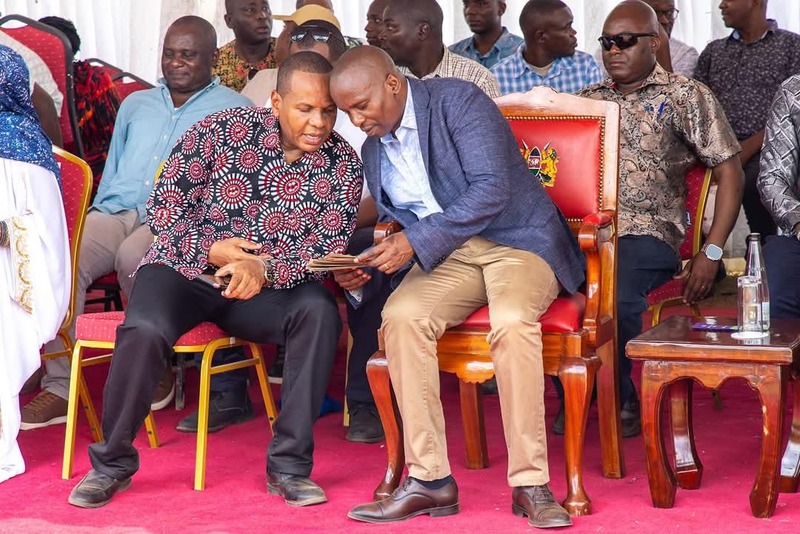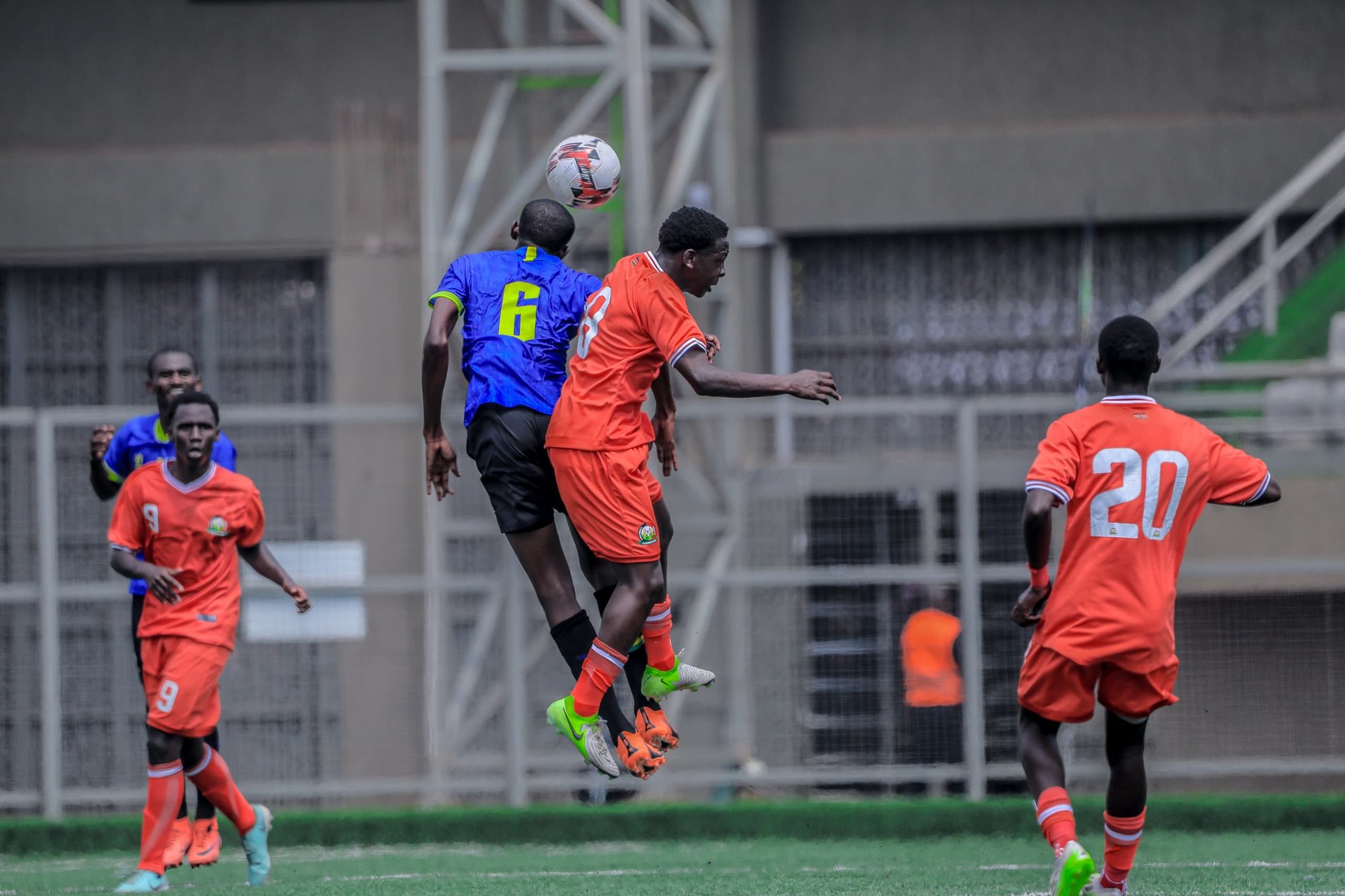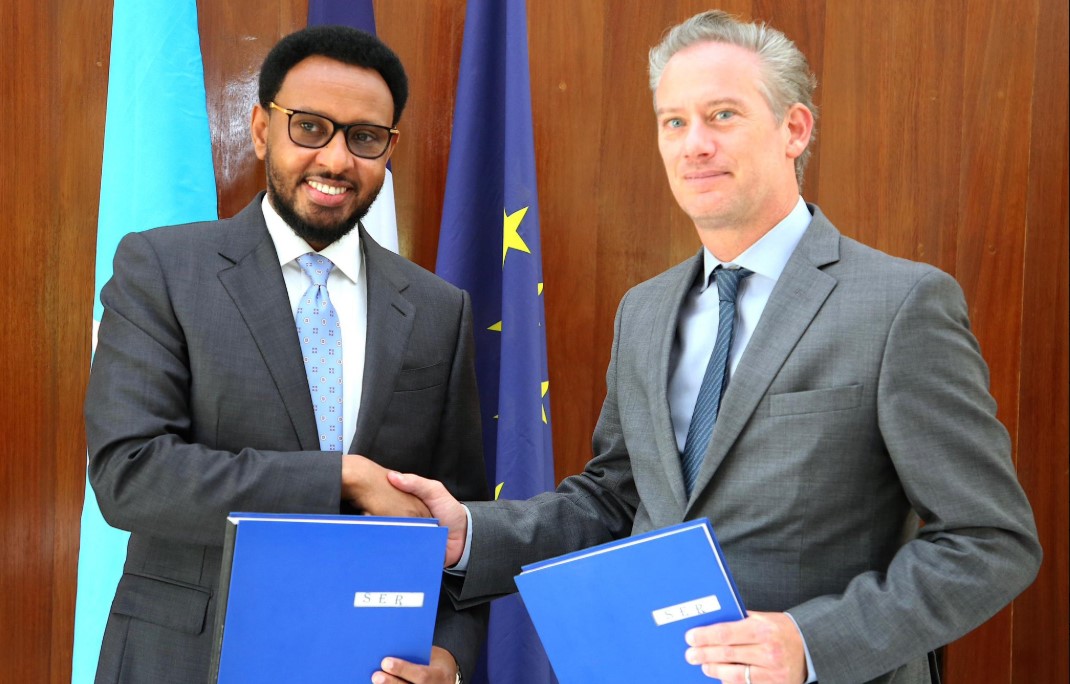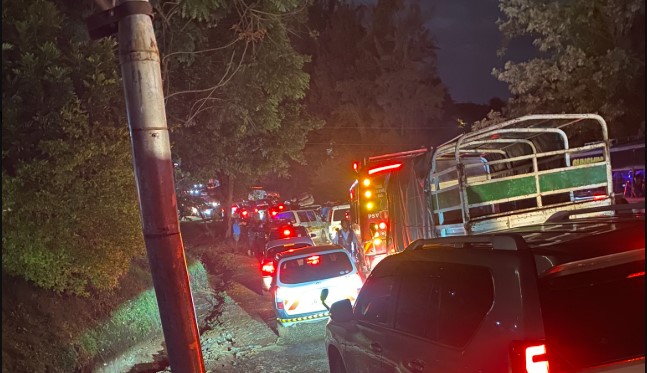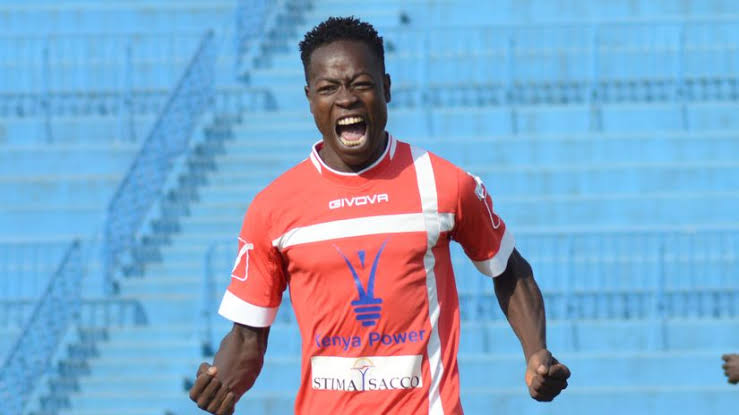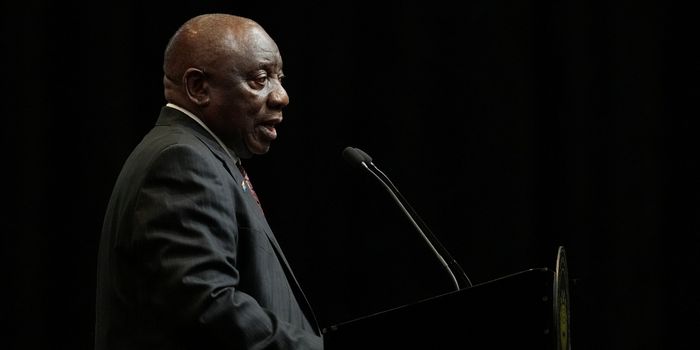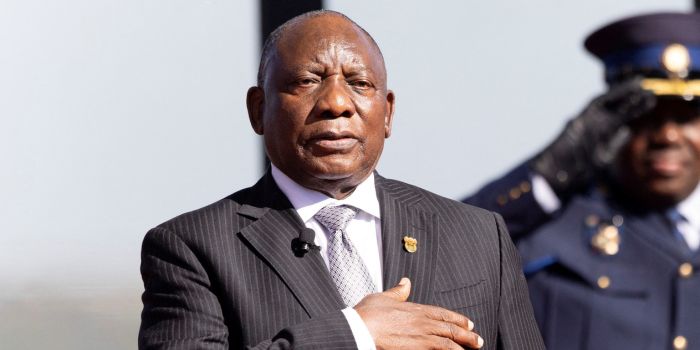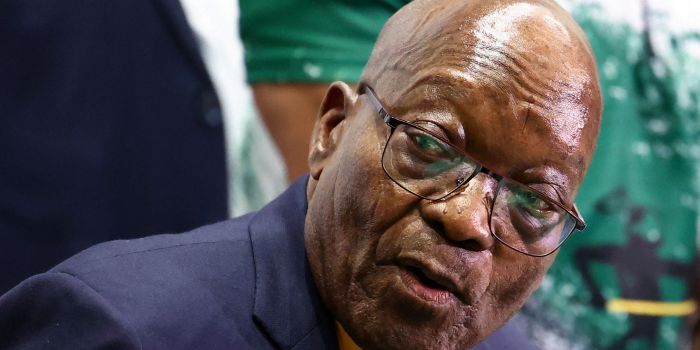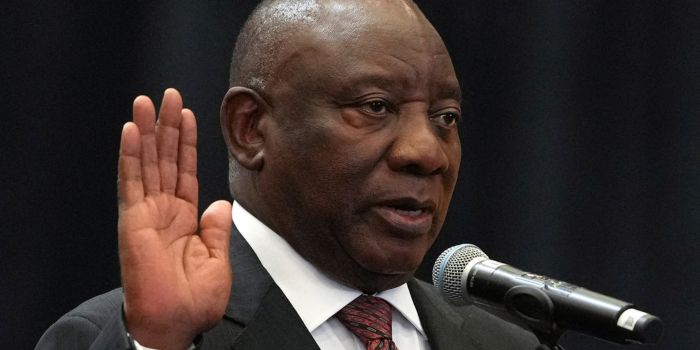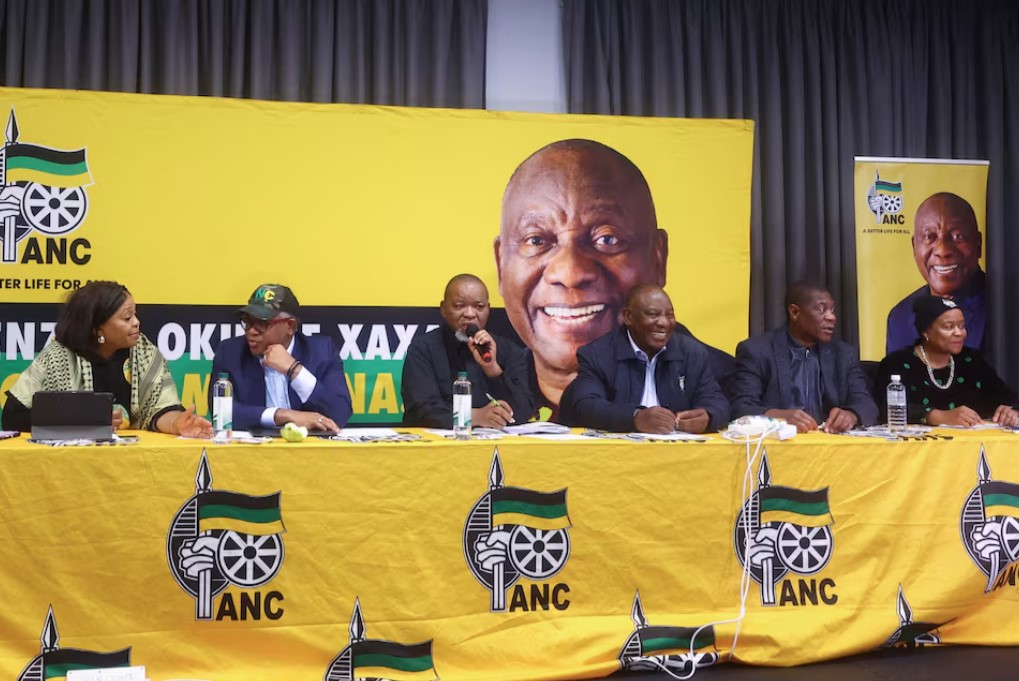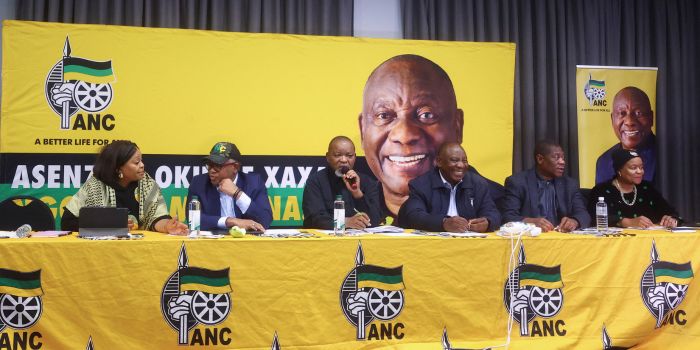South Africa's ANC kicks off election season as Zuma lurks
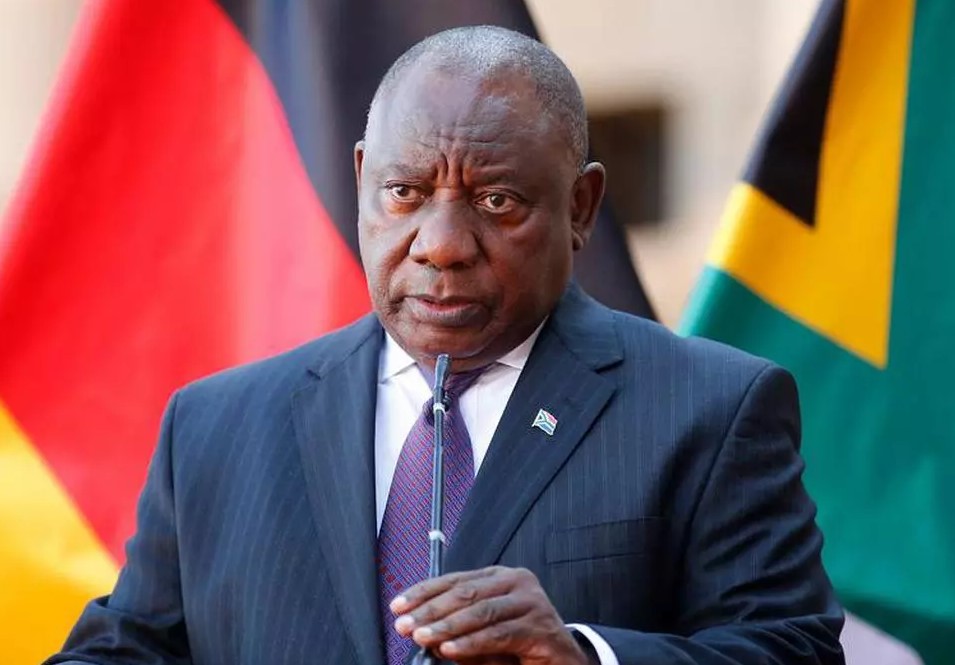
By Agency |
In power since the advent of democracy in 1994, Ramaphosa's African National Congress has suffered a sharp decline in support, beset by allegations of corruption and mismanagement.
South Africa's ruling ANC kickstarts its election campaign Saturday for polls on May 29, facing its worst result ever amid high unemployment, a sluggish economy and a challenge from its former leader.
President Cyril Ramaphosa and his embittered predecessor, Jacob Zuma, are expected to address rival events in the eastern KwaZulu-Natal province, a key electoral battleground.
Keep reading
- South Africa’s unity govt could see a continuation of the ANC’s political dominance – and hurt the DA
- South Africa's ANC expels former president Zuma after election betrayal
- South Africa is changing its retirement rules to help boost country savings: how it will work
- South Africa's Ramaphosa announces cabinet that includes ex-opposition leader
In power since the advent of democracy in 1994, Ramaphosa's African National Congress has suffered a sharp decline in support, beset by allegations of corruption and mismanagement.
It is facing an uphill battle to keep its parliamentary majority, with polls showing it particularly vulnerable in KwaZulu-Natal -- Zuma's home province.
Long resentful about the way he was forced out of office, the former president has joined an opposition group seeking to cut into the ANC's share of the vote.
"Zuma represents the single biggest threat to the ANC in KwaZulu-Natal," said Zakhele Ndlovu, a politics lecturer at the University of KwaZulu-Natal in Durban.
The feud between the two leaders will play out in the open on Saturday when the ANC expects 85,000 activists to fill a soccer stadium in Durban for the launch of its election manifesto.
Zuma will be holding court less than an hour away at a country club in the coastal town of Scottburgh.
South Africa's second-most populous province, KwaZulu-Natal is seen as a gauge of the ANC's national prospects.
It has the biggest ANC membership, but the party is already under pressure from the liberal Democratic Alliance (DA) and its ally, the Zulu-nationalist Inkatha Freedom Party.
"If the ANC doesn't do well in KwaZulu-Natal, it will not do well nationally," said Susan Booysen, a political analyst for the Mapungubwe Institute for Strategic Reflection.
Polls indicate the party could win as little as 40 per cent of the vote nationwide, which would force it to seek a coalition government to stay in power.
But, due to budgetary constraints, Ramaphosa is unlikely to make grand electoral promises, analysts say.
He is instead expected to tout the ANC's credentials as the liberation movement that brought democracy to South Africa and helped lift many from poverty.
Access to healthcare and social security grants are a key draw for a large part of the electorate, said Booysen.
"The big task for the ANC will be, despite all other problems and its decline, to project itself as a big strong party that can do things," she said.
Supporters will probably also hear pledges to end crippling power cuts, fight rampant crime and create jobs, but their effectiveness has been undercut by the ANC's record.
Official figures released over the past weeks show both the murder and the jobless rates have gone up in recent months.
South Africa recorded almost 84 murders per day between October and December. Unemployment over the same period was at 32.1 per cent.
Three decades after the end of apartheid, the country remains the world's most unequal, according to the World Bank.
"The ANC has run out of slogans," said Xolani Dube, a political analyst with the Xubera Institute.
On Friday, Ramaphosa declared election day -- May 29 -- a national holiday.
More than 27 million people are registered to vote, according to the Electoral Commission.
Zuma is relying largely on his clout and charisma to lure voters towards his new radical Umkhonto We Sizwe (MK), or Spear of the Nation, observers say.
Named after the ANC's former military wing, the group does not have significant policy differences from the ruling party.
Tainted by scandal and facing corruption allegations, the 81-year-old remains very popular in his home province, where many identify with his traditional mores.
More than 60 per cent of voters there approve of him, according to the Social Research Foundation. MK could win about 20 per cent of the vote in the province, the pollster said.
"He is a magnet for people who have become alienated from the ANC," said Booysen.
Disgruntled ruling party supporters do not feel "entirely disloyal" voting for Zuma, but know that doing so "will punish the ANC", she added.
Yet, the elderly statesman's home popularity does not extend nationwide, with less than 30 per cent of voters seeing him favourably.
An Ipsos survey conducted before MK was established showed the DA and the radical leftist EFF are vying for second place, with about 20 and 19 per cent respectively.
Reader comments
Follow Us and Stay Connected!
We'd love for you to join our community and stay updated with our latest stories and updates. Follow us on our social media channels and be part of the conversation!
Let's stay connected and keep the dialogue going!

